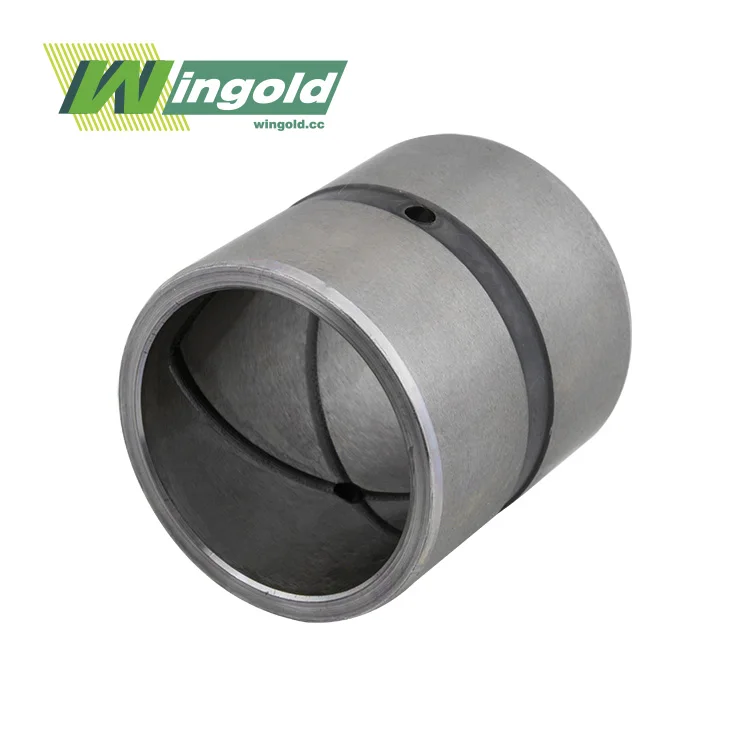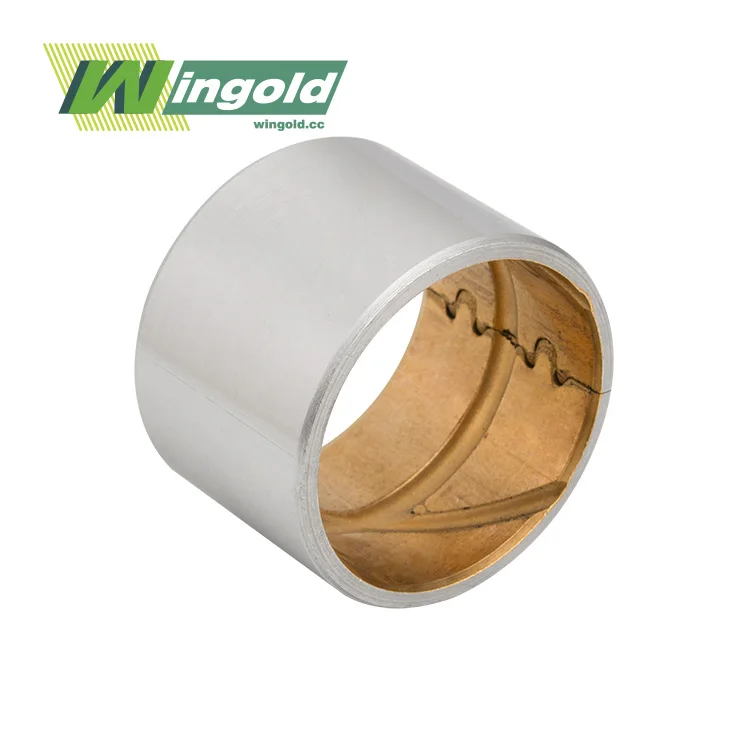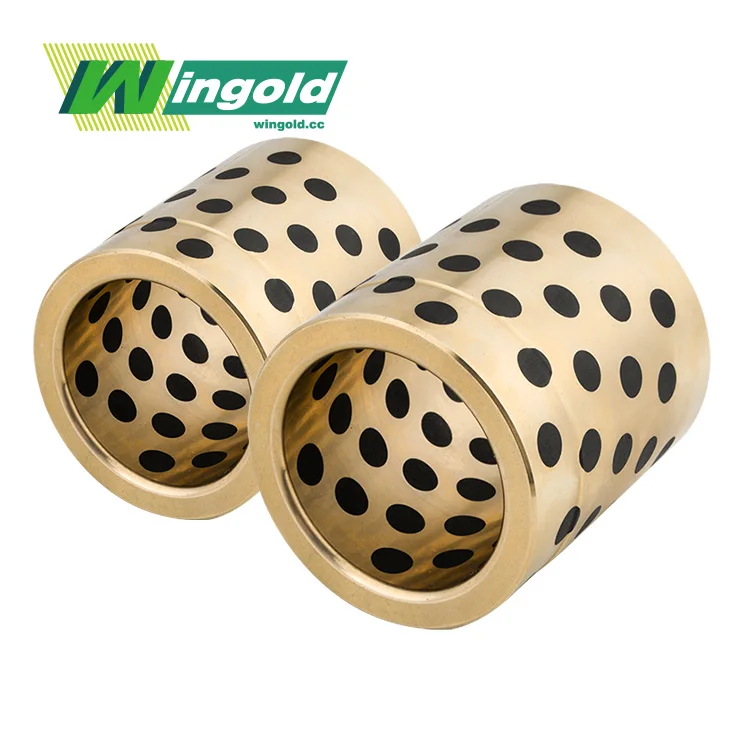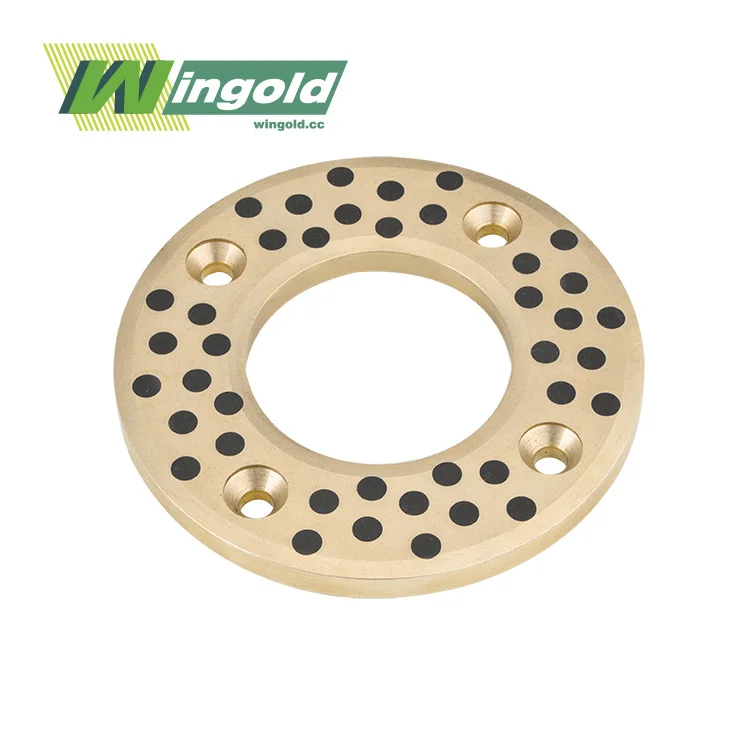Understanding Marine Corrosion and Its Impact on Bronze Bushings

The Corrosive Nature of Marine Environments
Marine situations show one-of-a-kind challenges for mechanical components, particularly bronze bushings, due to the harsh and persistent effects of the marine environment. The combination of saltwater, stickiness, and fluctuating temperatures makes an exceedingly destructive climate that can quickly corrupt unprotected surfaces and shorten component life. Saltwater, in specific, is an impressive foe due to its high chloride substance, which quickens oxidation and sets erosion on bronze surfaces, compromising durability and performance.
How Corrosion Affects Bronze Bushing Performance?
Corrosion on bronze bushings can manifest in various forms, including uniform surface corrosion, pitting, and dezincification, depending on the exposure severity. These corrosive processes not only compromise the structural integrity of the bushing but also lead to increased friction, reduced load-bearing capacity, and eventual system failure. The degradation of bronze bushings due to corrosion can result in costly equipment downtime, safety hazards, and increased maintenance expenses for marine and coastal operations over time.
The Role of Lubrication in Corrosion Prevention
Proper bronze bushing lubrication plays a pivotal role in protecting against marine corrosion, particularly in high-humidity or saltwater-prone areas. High-quality lubricants create a protective barrier between the bronze surface and the corrosive environment, preventing direct contact with saltwater and oxygen. Additionally, advanced lubricants contain corrosion inhibitors that actively neutralize corrosive agents, further enhancing the bushing's resistance to degradation and extending service life under marine or coastal exposure conditions.
Advanced Lubrication Strategies for Marine Bronze Bushings
Selecting the Ideal Lubricant for Marine Applications
Choosing the right lubricant is paramount for effective bronze bushing lubrication in marine settings where conditions are often unpredictable. Synthetic lubricants with high viscosity indexes and excellent water resistance are often preferred due to their superior performance in extreme conditions. These lubricants maintain their protective properties even when exposed to saltwater spray or high humidity, ensuring consistent corrosion protection and maintaining bushing integrity during continuous operation in demanding marine environments.
Innovative Lubrication Techniques for Enhanced Protection
Beyond traditional greasing methods, innovative lubrication techniques can significantly improve corrosion resistance and extend the life of bronze bushing lubrication. Automated lubrication systems, for instance, ensure consistent and precise lubricant application, reducing the risk of under- or over-lubrication during operation. Furthermore, the use of specialized coating technologies, such as diamond-like carbon (DLC) coatings, can provide an additional layer of protection against corrosion and wear, especially in mission-critical marine equipment.
Optimizing Lubrication Intervals and Quantities
Determining the optimal lubrication frequency and quantity is crucial for maintaining effective corrosion resistance over the long term. Factors such as operating conditions, load, and environmental exposure must be considered when establishing lubrication schedules to ensure consistent protection. Regular monitoring and analysis of lubricant condition can help fine-tune these parameters, ensuring that bronze bushings receive adequate protection without wasteful over-lubrication or lubrication gaps in harsh marine settings.
Maintenance Best Practices for Corrosion-Resistant Bronze Bushings
Implementing Rigorous Inspection Routines
Regular and thorough inspections are essential for early detection of corrosion and lubrication issues, particularly in environments prone to salt exposure. Developing a comprehensive inspection checklist that includes visual examinations, dimensional checks, and lubricant analysis can help identify potential problems before they escalate. Advanced inspection techniques, such as ultrasonic testing or thermography, can provide deeper insights into the condition of bronze bushings and their lubrication status, improving overall maintenance effectiveness.
Proper Cleaning and Preparation Techniques
Effective cleaning and preparation of bronze bushings prior to bronze bushing lubrication are critical for maintaining corrosion resistance, especially after extended exposure to marine elements. Removing old lubricant, contaminants, and any existing corrosion ensures that new lubricant can adhere properly and provide maximum protection. Specialized cleaning agents designed for marine applications can effectively remove salt deposits and other corrosive substances without damaging the bronze surface or compromising its structural characteristics.
Documentation and Analysis for Continuous Improvement
Maintaining detailed records of lubrication activities, inspection results, and bushing performance is invaluable for optimizing corrosion resistance strategies in marine environments. By analyzing this data over time, maintenance teams can identify trends, refine lubrication practices, and make informed decisions about lubricant selection and application methods. This data-driven approach leads to continuous improvement in corrosion resistance and overall bushing performance, helping extend operational lifespan and reduce unexpected failures.
Conclusion
Mastering bronze bushing lubrication for marine corrosion resistance is a complex but essential task for ensuring the reliability and longevity of marine equipment. By implementing advanced lubrication strategies, selecting appropriate lubricants, and adhering to rigorous maintenance practices, marine engineers and maintenance professionals can significantly enhance the corrosion resistance of bronze bushings.
This proactive approach not only extends the service life of critical components but also contributes to improved operational efficiency and reduced maintenance costs in challenging marine environments. For expert guidance on bronze bushing lubrication solutions tailored to your specific marine applications, contact Wingold Bearing at info@wingold.cc.



